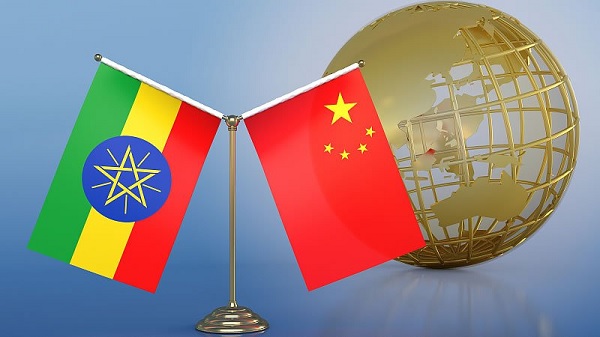
Ethiopia and China have a strong working relationship that is becoming even stronger as the two countries increase cooperation in the economic and trade sectors. The former has become one of the major and most important partners of the latter’s all-weather strategy in Africa, and as a result, the country has attracted a great deal of Chinese investment and business involvement in Africa.
In the last few months though, Ethiopia has embarked on comprehensive macro adjustments for liberalization of its economy for FDI and others. These reforms are well aimed at the domestic economy but also offer incentives to foreign investors in search of better investment opportunities in emergent economies. Therefore, Ethiopia has the potential to become a more attractive country in which Chinese companies can establish their operations.
Due to Chinese FDI, the various sectors within Ethiopia are anticipated to gain a boost such as almost existing infrastructure, manufacturing, agriculture, etc. This matches China’s more extensive Belt and Road Initiative that is aimed at increasing connection and commerce across Africa and Asia. Chinese firms have already invested in other infrastructure sectors such as roads, railways, and energy sectors that remain crucial to Ethiopia’s economy.
Speaking at the Jiangsu-Ethiopia Economic and Trade Cooperation Conference, Finance Minister Ahmed Shide emphasized Ethiopia’s unwavering commitment to further strengthening its cooperation with China.
He said that, Ethiopia has projected a stronger and more resilient Ethio-China economic partnership, fuelled by recent macroeconomic policy reforms designed to attract greater foreign direct investment.
The minister reaffirmed Ethiopia’s strong commitment to deepening its cooperation with China. He also highlighted that China has become Ethiopia’s largest investment partner. In his remarks, Ahmed outlined the country’s on-going economic reforms, which are designed to provide greater incentives for foreign investors, including enabling them to own permanent assets.
“Our reforms include investment incentives and enhanced legislative frameworks that make Ethiopia a more attractive destination for foreign investors,” the minister said. He added that these changes, coupled with the implementation of the African Continental Free Trade Area (AfCFTA), will position Ethiopia as a central player in Africa’s economic future.
Foreign Affairs State Minister Amb. Misganu Arega noted that, Ethiopia is actively implementing the agreements made during Prime Minister Abiy’s visit to China. He encouraged more enterprises from Jiangsu province to invest in Ethiopia, noting that several companies from the region are already making significant contributions. Misganu also stressed that, Ethiopia is keen to expand its economic ties and partnerships.
Jiangsu Province Governor XuKunlin also reaffirmed his commitment to strengthening economic ties, particularly in the manufacturing sector. He mentioned Ethiopia’s growing demand for high-quality industrial products, positioning the country as an increasingly attractive destination for investment.
LailaLokosang, Senior Technical Advisor at the African Union Commission emphasized the need for stronger trade relations between China and Africa, particularly in the agricultural sector. “China is poised to become a major recipient of African exports, especially agricultural products,” Lokosang said, urging China to further open its markets to African producers.
The Ethiopia-China partnership is viewed as a model for broader China-Africa economic integration, with both sides seeking to expand cooperation in key sectors such as agro-industry, coffee, oilseeds, and other essential commodities.
In the arena of constriction, the China Communications Construction Company Limited (CCCC) positioned itself as the top contractor in Ethiopia as far as infrastructural development was concerned. Additionally, the company’s track in Ethiopia is not just in constriction it is in capacity and experiential knowledge empowered its employees.
The recent graduation of Seagull Talent’s month-long training initiative, conducted by China First Highway Engineering Co., Ltd. (CFHEC), aims to deepen the collaboration between Ethiopian employees and Chinese management, aligning with the broader strategic partnership between the two nations.
In an interview with local media Wei Qiangyu, General Manager of CCCC Ethiopia, emphasized the importance of such training programs in fostering a cooperative spirit that transcends governmental engagements, stating, “We need specific cooperation not only at the government level but also company to company and people to people.” With nearly three decades of operations in Ethiopia, CCCC has committed to technology transfer and capacity building as part of its corporate ethos.
Wei expressed confidence that this initiative would not only enhance employees’ skills but also promote a deeper understanding of Chinese culture and language, crucial for future collaboration.
With over 8,000 Ethiopian employees, CCCC recognizes the need to expand its training efforts beyond the initial 102 participants in this program. Wei revealed plans for subsequent training batches, which will incorporate lessons learned to better serve the workforce and bolster the company’s local management capabilities.
The initiative has garnered attention from both the Ethiopian and Chinese governments, with discussions underway to potentially extend the training model to a national level. This aligns with the Chinese Ministry of Science and Technology’s recognition of the program’s significance, highlighting its potential impact on broader China-African cooperation.
As Ethiopia continues to attract Chinese investment, programs like CCCC’s training initiative are seen as vital for cultivating a skilled workforce capable of meeting the demands of an evolving economic landscape.
Moreover, the growing trade relationship between the two countries is reflected in the increasing volume of goods exchanged. Ethiopia exports agricultural products like coffee and textiles to China while importing machinery and technology, which are crucial for its industrial development.
As both nations navigate the complexities of the global economy, their partnership continues to evolve. The Ethiopian government has expressed a commitment to fostering a favourable business environment to attract more foreign investment. This commitment, coupled with China’s willingness to invest in Ethiopia’s development, suggests that their relationship will only deepen in the years to come.
It is also well known that Ethiopia has started an aggressive process of modernizing its infrastructure base that includes massive investment in telecommunication, transport, and a host of other sectors. In this transformative effort, the Export-Import Bank of China (EXIM Bank) stood out as one of the key sources of financial and has been crucial.
BY EYUEL KIFLU
THE ETHIOPIAN HERALD TUESDAY 19 NOVEMBER 2024



